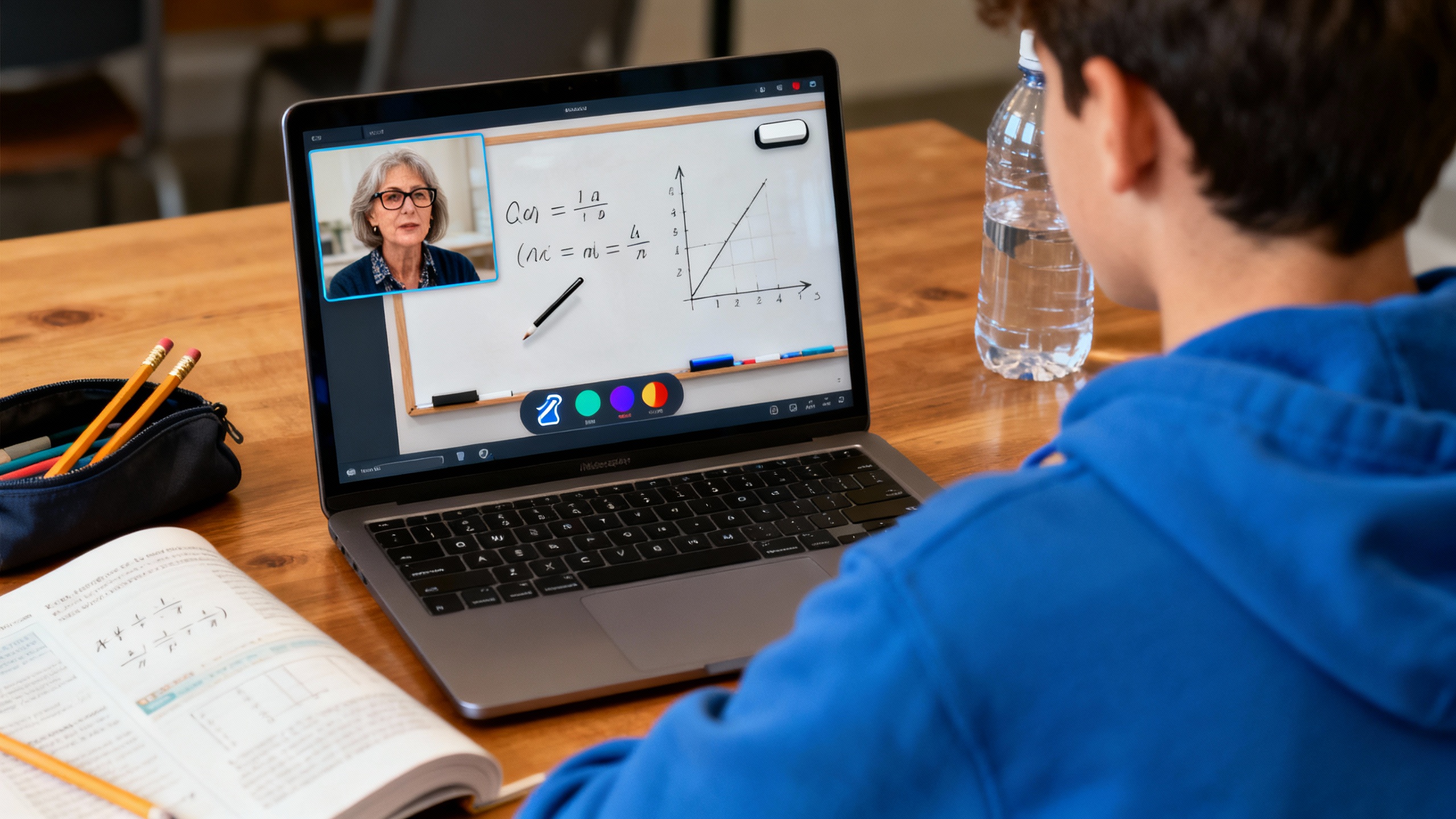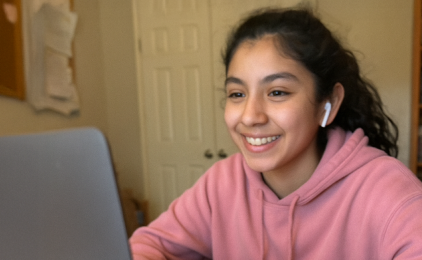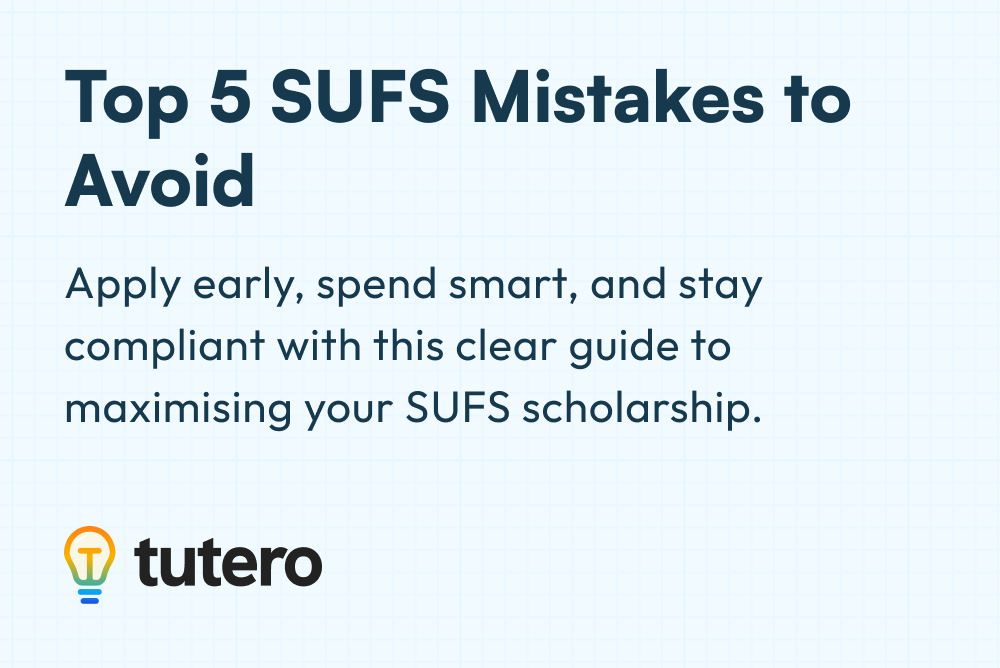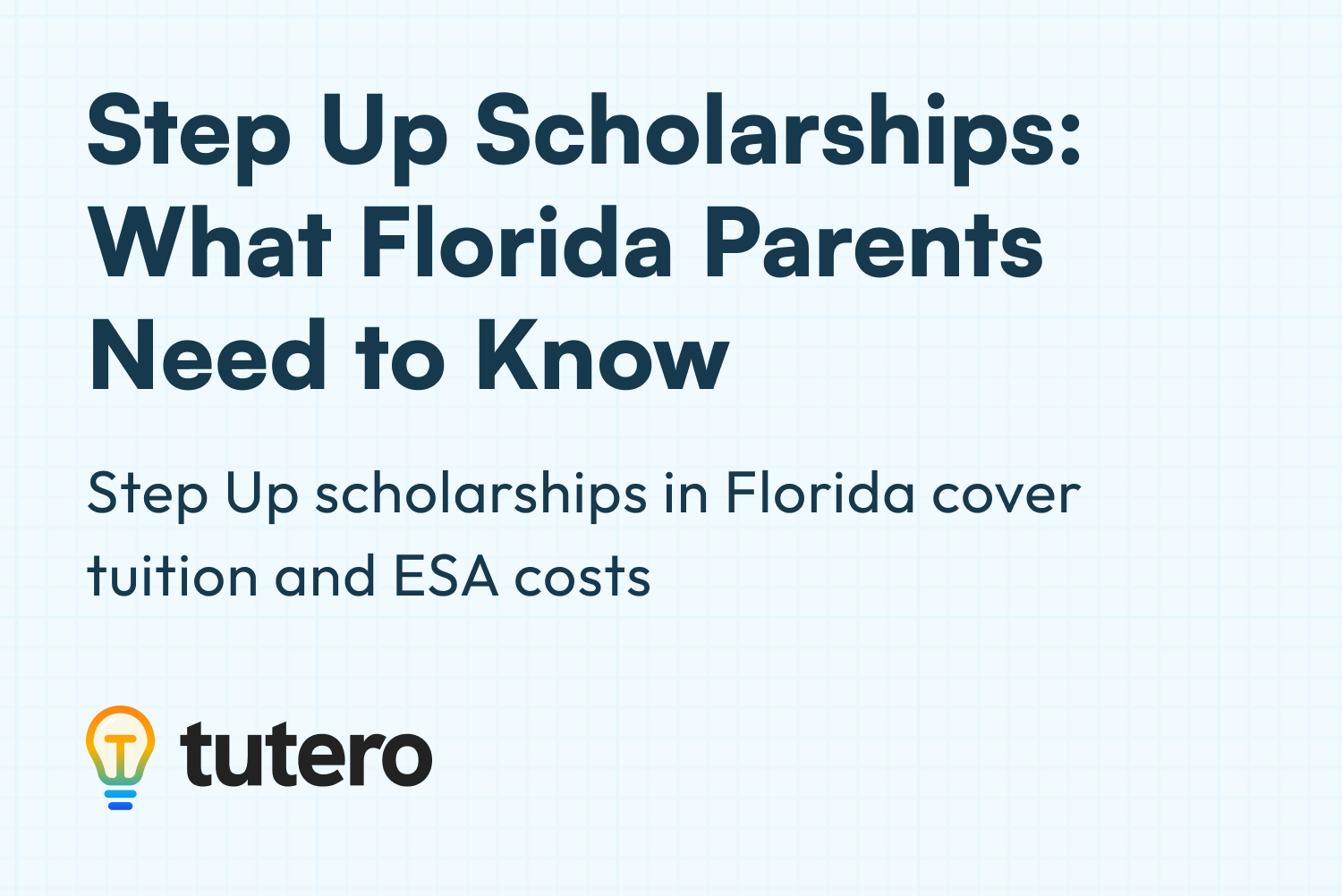Navigating what you can spend your Step Up For Students (SUFS) scholarship dollars on—and what you can’t—is one of the biggest pain-points Florida parents face. With multiple scholarship types (FTC, FES-EO, FES-UA, PEP), each with its own rules, it’s easy to feel uncertain. This guide cuts through the confusion: we’ll explore major eligible categories, highlight common ineligible purchases, and give you the clarity to spend wisely and confidently.

✅ What You Can Buy (Eligible Uses)
Here are some of the most common and valuable categories of approved expenses—and some surprising ones you might not realise are allowed.
Tuition, fees & school costs
Most scholarship types allow tuition and fee payments for eligible private schools, home education programmes and approved virtual/online providers. For example, the FES-EO programme explicitly covers tuition and fees associated with full-time or part-time enrolment in an eligible private school or approved online provider.
It also allows school-related fees such as registration, book fees, activity fees, and technology fees when those are charged by the school.

Curriculum, instructional & digital materials
Textbooks, workbooks, digital subscriptions, online curriculum, educational apps and internet resources are eligible—when they meet the “instructional materials” definition. The FES-UA guide states that “instructional materials, including digital materials and Internet resources” are authorised uses.
Even devices used specifically for instruction (laptops, tablets, assistive tech) appear in the purchasing guide under eligible items for FES-UA.
Tutoring and specialised services
For scholarship types that allow it (like FES-UA and PEP), personal tutoring, therapies, and specialised educational services are approved uses of funds. The official guidance even lists “a private tutoring program authorised under s. 1002.43 F.S.” as an eligible tuition expense. This gives families flexibility to use part of their scholarship for live, structured teaching support — not just school tuition or online courses. For many students, especially those learning from home or in hybrid models, this option provides targeted academic help that’s both personalised and outcomes-driven.
At Tutero, we’re an approved online tutoring provider offering one-on-one and small-group maths lessons aligned with Florida curriculum standards. Every session is delivered by qualified educators who tailor instruction to each student’s needs, whether that’s catching up, extending, or addressing specific learning gaps. Many Step Up families choose Tutero to invest their scholarship funds in live tutoring because it directly strengthens classroom confidence and long-term academic growth.

Electives, enrichment and equipment (with caveats)
The 2024-25 Purchasing Guide for FES-UA includes things like music lessons, art supplies, sports lessons, home-classroom furnishings and non-motorised equipment (e.g., bicycles, standing desks) under specific conditions.
For instance, sports equipment and individual training count, but large-scale items (motorised vehicles, pools) remain prohibited.
This is a big opportunity for families thinking outside the “standard tuition + books” box.
Internet service, assistive tech & home-classroom setup
In the FES-UA guide, internet service at the student’s residence, routers/modems, and assistive technology devices (for unique abilities students) are explicitly included.
Also, classroom furnishings—desks, chairs, whiteboards, storage—when used to support a home learning environment.

❌ What You Can’t Buy (Prohibited or High-Risk)
Here’s a look at the frequent pitfalls—spending that looks “educational” but is either clearly prohibited or requires a pre-authorization and risks being denied.
Out-of-state services or non-Florida providers
Many scholarship guides stipulate that services must be delivered in Florida unless pre-authorized. For example: “Out-of-State Activities: With the exception of credentialed providers whose services are delivered virtually … services must be delivered in Florida.”
If you’re working with an online programme headquartered out-of-state, check eligibility carefully before spending.
General household items, vehicles, pools, leisure equipment
Certain items—even if fun and seemingly educational—are explicitly prohibited. The FES-UA guide lists, for example: “motorised vehicles, including but not limited to two-, three-, and four-wheeled vehicles … watercrafts …” as ineligible.
And while some sports equipment is allowed, large home playgrounds, trampolines or in-ground pools are not.
Items lacking direct educational benefit or unsupported by documentation
The pre-authorization document states: “Requests for purchases must include information how the item or service qualifies as an educational expense that directly benefits the student’s learning.”
If you buy something without clear educational purpose or without approved provider/vendor, reimbursement might get denied.

Multi-user subscriptions, family memberships or non-student-exclusive items
Some new guide updates remove family/multi-user subscriptions or family memberships from eligible lists. For example, in the summary of changes: “Removed: Family or multi-user subscriptions” under certain programs.
Always check who will use the item and whether it’s fully allocated to the scholarship student.
Purchases made after the academic year ends, or prior to award
Scholarship funds typically apply to the application year and must be spent within prescribed windows. Items purchased too early (before award) or too late (after deadline) may not qualify. Pre-authorisation must be submitted before April 30 for many programs.
💡 Five Smart Tips for Making Each Purchase Count
- Reference the specific purchasing guide for your scholarship type. There are key differences between FTC/FES-EO, FES-UA and PEP.
- Use the MyScholarShop marketplace when available. Items in there are pre-approved and reduce risk of denials.
- Ask the “education benefit” question: Will this item/service directly advance the student’s learning or meet the student’s plan? If yes, more likely eligible.
- Keep documentation: receipts, vendor invoices, proof of Florida delivery or provider credentials.
- Budget for flex-funds: After core tuition/curriculum costs, set aside some funds for enrichment, tutoring or technology—but always check eligibility before spending.
Final Word
Mis-spending or uncertainty shouldn’t cost you or your child opportunities. With SUFS, the difference between “allowed” and “denied” isn’t always obvious—but armed with clarity, you can act confidently.
Before each purchase: check your handbook, ask the question, and if needed, submit a pre-authorization.
When parents understand the rules as well as the benefits, they don’t just use the scholarship—they maximise it.
Navigating what you can spend your Step Up For Students (SUFS) scholarship dollars on—and what you can’t—is one of the biggest pain-points Florida parents face. With multiple scholarship types (FTC, FES-EO, FES-UA, PEP), each with its own rules, it’s easy to feel uncertain. This guide cuts through the confusion: we’ll explore major eligible categories, highlight common ineligible purchases, and give you the clarity to spend wisely and confidently.

✅ What You Can Buy (Eligible Uses)
Here are some of the most common and valuable categories of approved expenses—and some surprising ones you might not realise are allowed.
Tuition, fees & school costs
Most scholarship types allow tuition and fee payments for eligible private schools, home education programmes and approved virtual/online providers. For example, the FES-EO programme explicitly covers tuition and fees associated with full-time or part-time enrolment in an eligible private school or approved online provider.
It also allows school-related fees such as registration, book fees, activity fees, and technology fees when those are charged by the school.

Curriculum, instructional & digital materials
Textbooks, workbooks, digital subscriptions, online curriculum, educational apps and internet resources are eligible—when they meet the “instructional materials” definition. The FES-UA guide states that “instructional materials, including digital materials and Internet resources” are authorised uses.
Even devices used specifically for instruction (laptops, tablets, assistive tech) appear in the purchasing guide under eligible items for FES-UA.
Tutoring and specialised services
For scholarship types that allow it (like FES-UA and PEP), personal tutoring, therapies, and specialised educational services are approved uses of funds. The official guidance even lists “a private tutoring program authorised under s. 1002.43 F.S.” as an eligible tuition expense. This gives families flexibility to use part of their scholarship for live, structured teaching support — not just school tuition or online courses. For many students, especially those learning from home or in hybrid models, this option provides targeted academic help that’s both personalised and outcomes-driven.
At Tutero, we’re an approved online tutoring provider offering one-on-one and small-group maths lessons aligned with Florida curriculum standards. Every session is delivered by qualified educators who tailor instruction to each student’s needs, whether that’s catching up, extending, or addressing specific learning gaps. Many Step Up families choose Tutero to invest their scholarship funds in live tutoring because it directly strengthens classroom confidence and long-term academic growth.

Electives, enrichment and equipment (with caveats)
The 2024-25 Purchasing Guide for FES-UA includes things like music lessons, art supplies, sports lessons, home-classroom furnishings and non-motorised equipment (e.g., bicycles, standing desks) under specific conditions.
For instance, sports equipment and individual training count, but large-scale items (motorised vehicles, pools) remain prohibited.
This is a big opportunity for families thinking outside the “standard tuition + books” box.
Internet service, assistive tech & home-classroom setup
In the FES-UA guide, internet service at the student’s residence, routers/modems, and assistive technology devices (for unique abilities students) are explicitly included.
Also, classroom furnishings—desks, chairs, whiteboards, storage—when used to support a home learning environment.

❌ What You Can’t Buy (Prohibited or High-Risk)
Here’s a look at the frequent pitfalls—spending that looks “educational” but is either clearly prohibited or requires a pre-authorization and risks being denied.
Out-of-state services or non-Florida providers
Many scholarship guides stipulate that services must be delivered in Florida unless pre-authorized. For example: “Out-of-State Activities: With the exception of credentialed providers whose services are delivered virtually … services must be delivered in Florida.”
If you’re working with an online programme headquartered out-of-state, check eligibility carefully before spending.
General household items, vehicles, pools, leisure equipment
Certain items—even if fun and seemingly educational—are explicitly prohibited. The FES-UA guide lists, for example: “motorised vehicles, including but not limited to two-, three-, and four-wheeled vehicles … watercrafts …” as ineligible.
And while some sports equipment is allowed, large home playgrounds, trampolines or in-ground pools are not.
Items lacking direct educational benefit or unsupported by documentation
The pre-authorization document states: “Requests for purchases must include information how the item or service qualifies as an educational expense that directly benefits the student’s learning.”
If you buy something without clear educational purpose or without approved provider/vendor, reimbursement might get denied.

Multi-user subscriptions, family memberships or non-student-exclusive items
Some new guide updates remove family/multi-user subscriptions or family memberships from eligible lists. For example, in the summary of changes: “Removed: Family or multi-user subscriptions” under certain programs.
Always check who will use the item and whether it’s fully allocated to the scholarship student.
Purchases made after the academic year ends, or prior to award
Scholarship funds typically apply to the application year and must be spent within prescribed windows. Items purchased too early (before award) or too late (after deadline) may not qualify. Pre-authorisation must be submitted before April 30 for many programs.
💡 Five Smart Tips for Making Each Purchase Count
- Reference the specific purchasing guide for your scholarship type. There are key differences between FTC/FES-EO, FES-UA and PEP.
- Use the MyScholarShop marketplace when available. Items in there are pre-approved and reduce risk of denials.
- Ask the “education benefit” question: Will this item/service directly advance the student’s learning or meet the student’s plan? If yes, more likely eligible.
- Keep documentation: receipts, vendor invoices, proof of Florida delivery or provider credentials.
- Budget for flex-funds: After core tuition/curriculum costs, set aside some funds for enrichment, tutoring or technology—but always check eligibility before spending.
Final Word
Mis-spending or uncertainty shouldn’t cost you or your child opportunities. With SUFS, the difference between “allowed” and “denied” isn’t always obvious—but armed with clarity, you can act confidently.
Before each purchase: check your handbook, ask the question, and if needed, submit a pre-authorization.
When parents understand the rules as well as the benefits, they don’t just use the scholarship—they maximise it.
FAQ
.svg)
.svg)
Online maths tutoring at Tutero is catering to students of all year levels. We offer programs tailored to the unique learning curves of each age group.
.svg)
.svg)
We also have expert NAPLAN and ATAR subject tutors, ensuring students are well-equipped for these pivotal assessments.
.svg)
.svg)
We recommend at least two to three session per week for consistent progress. However, this can vary based on your child's needs and goals.
.svg)
.svg)
Our platform uses advanced security protocols to ensure the safety and privacy of all our online sessions.
.svg)
.svg)
Parents are welcome to observe sessions. We believe in a collaborative approach to education.
.svg)
.svg)
We provide regular progress reports and assessments to track your child’s academic development.
.svg)
.svg)
Yes, we prioritise the student-tutor relationship and can arrange a change if the need arises.
.svg)
.svg)
Yes, we offer a range of resources and materials, including interactive exercises and practice worksheets.
Navigating what you can spend your Step Up For Students (SUFS) scholarship dollars on—and what you can’t—is one of the biggest pain-points Florida parents face. With multiple scholarship types (FTC, FES-EO, FES-UA, PEP), each with its own rules, it’s easy to feel uncertain. This guide cuts through the confusion: we’ll explore major eligible categories, highlight common ineligible purchases, and give you the clarity to spend wisely and confidently.

✅ What You Can Buy (Eligible Uses)
Here are some of the most common and valuable categories of approved expenses—and some surprising ones you might not realise are allowed.
Tuition, fees & school costs
Most scholarship types allow tuition and fee payments for eligible private schools, home education programmes and approved virtual/online providers. For example, the FES-EO programme explicitly covers tuition and fees associated with full-time or part-time enrolment in an eligible private school or approved online provider.
It also allows school-related fees such as registration, book fees, activity fees, and technology fees when those are charged by the school.

Curriculum, instructional & digital materials
Textbooks, workbooks, digital subscriptions, online curriculum, educational apps and internet resources are eligible—when they meet the “instructional materials” definition. The FES-UA guide states that “instructional materials, including digital materials and Internet resources” are authorised uses.
Even devices used specifically for instruction (laptops, tablets, assistive tech) appear in the purchasing guide under eligible items for FES-UA.
Tutoring and specialised services
For scholarship types that allow it (like FES-UA and PEP), personal tutoring, therapies, and specialised educational services are approved uses of funds. The official guidance even lists “a private tutoring program authorised under s. 1002.43 F.S.” as an eligible tuition expense. This gives families flexibility to use part of their scholarship for live, structured teaching support — not just school tuition or online courses. For many students, especially those learning from home or in hybrid models, this option provides targeted academic help that’s both personalised and outcomes-driven.
At Tutero, we’re an approved online tutoring provider offering one-on-one and small-group maths lessons aligned with Florida curriculum standards. Every session is delivered by qualified educators who tailor instruction to each student’s needs, whether that’s catching up, extending, or addressing specific learning gaps. Many Step Up families choose Tutero to invest their scholarship funds in live tutoring because it directly strengthens classroom confidence and long-term academic growth.

Electives, enrichment and equipment (with caveats)
The 2024-25 Purchasing Guide for FES-UA includes things like music lessons, art supplies, sports lessons, home-classroom furnishings and non-motorised equipment (e.g., bicycles, standing desks) under specific conditions.
For instance, sports equipment and individual training count, but large-scale items (motorised vehicles, pools) remain prohibited.
This is a big opportunity for families thinking outside the “standard tuition + books” box.
Internet service, assistive tech & home-classroom setup
In the FES-UA guide, internet service at the student’s residence, routers/modems, and assistive technology devices (for unique abilities students) are explicitly included.
Also, classroom furnishings—desks, chairs, whiteboards, storage—when used to support a home learning environment.

❌ What You Can’t Buy (Prohibited or High-Risk)
Here’s a look at the frequent pitfalls—spending that looks “educational” but is either clearly prohibited or requires a pre-authorization and risks being denied.
Out-of-state services or non-Florida providers
Many scholarship guides stipulate that services must be delivered in Florida unless pre-authorized. For example: “Out-of-State Activities: With the exception of credentialed providers whose services are delivered virtually … services must be delivered in Florida.”
If you’re working with an online programme headquartered out-of-state, check eligibility carefully before spending.
General household items, vehicles, pools, leisure equipment
Certain items—even if fun and seemingly educational—are explicitly prohibited. The FES-UA guide lists, for example: “motorised vehicles, including but not limited to two-, three-, and four-wheeled vehicles … watercrafts …” as ineligible.
And while some sports equipment is allowed, large home playgrounds, trampolines or in-ground pools are not.
Items lacking direct educational benefit or unsupported by documentation
The pre-authorization document states: “Requests for purchases must include information how the item or service qualifies as an educational expense that directly benefits the student’s learning.”
If you buy something without clear educational purpose or without approved provider/vendor, reimbursement might get denied.

Multi-user subscriptions, family memberships or non-student-exclusive items
Some new guide updates remove family/multi-user subscriptions or family memberships from eligible lists. For example, in the summary of changes: “Removed: Family or multi-user subscriptions” under certain programs.
Always check who will use the item and whether it’s fully allocated to the scholarship student.
Purchases made after the academic year ends, or prior to award
Scholarship funds typically apply to the application year and must be spent within prescribed windows. Items purchased too early (before award) or too late (after deadline) may not qualify. Pre-authorisation must be submitted before April 30 for many programs.
💡 Five Smart Tips for Making Each Purchase Count
- Reference the specific purchasing guide for your scholarship type. There are key differences between FTC/FES-EO, FES-UA and PEP.
- Use the MyScholarShop marketplace when available. Items in there are pre-approved and reduce risk of denials.
- Ask the “education benefit” question: Will this item/service directly advance the student’s learning or meet the student’s plan? If yes, more likely eligible.
- Keep documentation: receipts, vendor invoices, proof of Florida delivery or provider credentials.
- Budget for flex-funds: After core tuition/curriculum costs, set aside some funds for enrichment, tutoring or technology—but always check eligibility before spending.
Final Word
Mis-spending or uncertainty shouldn’t cost you or your child opportunities. With SUFS, the difference between “allowed” and “denied” isn’t always obvious—but armed with clarity, you can act confidently.
Before each purchase: check your handbook, ask the question, and if needed, submit a pre-authorization.
When parents understand the rules as well as the benefits, they don’t just use the scholarship—they maximise it.
Lorem ipsum dolor sit amet, consectetur adipiscing elit. Suspendisse varius enim in eros elementum tristique. Duis cursus, mi quis viverra ornare, eros dolor interdum nulla, ut commodo diam libero vitae erat. Aenean faucibus nibh et justo cursus id rutrum lorem imperdiet. Nunc ut sem vitae risus tristique posuere.
Lorem ipsum dolor sit amet, consectetur adipiscing elit. Suspendisse varius enim in eros elementum tristique. Duis cursus, mi quis viverra ornare, eros dolor interdum nulla, ut commodo diam libero vitae erat. Aenean faucibus nibh et justo cursus id rutrum lorem imperdiet. Nunc ut sem vitae risus tristique posuere.


Navigating what you can spend your Step Up For Students (SUFS) scholarship dollars on—and what you can’t—is one of the biggest pain-points Florida parents face. With multiple scholarship types (FTC, FES-EO, FES-UA, PEP), each with its own rules, it’s easy to feel uncertain. This guide cuts through the confusion: we’ll explore major eligible categories, highlight common ineligible purchases, and give you the clarity to spend wisely and confidently.

✅ What You Can Buy (Eligible Uses)
Here are some of the most common and valuable categories of approved expenses—and some surprising ones you might not realise are allowed.
Tuition, fees & school costs
Most scholarship types allow tuition and fee payments for eligible private schools, home education programmes and approved virtual/online providers. For example, the FES-EO programme explicitly covers tuition and fees associated with full-time or part-time enrolment in an eligible private school or approved online provider.
It also allows school-related fees such as registration, book fees, activity fees, and technology fees when those are charged by the school.

Curriculum, instructional & digital materials
Textbooks, workbooks, digital subscriptions, online curriculum, educational apps and internet resources are eligible—when they meet the “instructional materials” definition. The FES-UA guide states that “instructional materials, including digital materials and Internet resources” are authorised uses.
Even devices used specifically for instruction (laptops, tablets, assistive tech) appear in the purchasing guide under eligible items for FES-UA.
Tutoring and specialised services
For scholarship types that allow it (like FES-UA and PEP), personal tutoring, therapies, and specialised educational services are approved uses of funds. The official guidance even lists “a private tutoring program authorised under s. 1002.43 F.S.” as an eligible tuition expense. This gives families flexibility to use part of their scholarship for live, structured teaching support — not just school tuition or online courses. For many students, especially those learning from home or in hybrid models, this option provides targeted academic help that’s both personalised and outcomes-driven.
At Tutero, we’re an approved online tutoring provider offering one-on-one and small-group maths lessons aligned with Florida curriculum standards. Every session is delivered by qualified educators who tailor instruction to each student’s needs, whether that’s catching up, extending, or addressing specific learning gaps. Many Step Up families choose Tutero to invest their scholarship funds in live tutoring because it directly strengthens classroom confidence and long-term academic growth.

Electives, enrichment and equipment (with caveats)
The 2024-25 Purchasing Guide for FES-UA includes things like music lessons, art supplies, sports lessons, home-classroom furnishings and non-motorised equipment (e.g., bicycles, standing desks) under specific conditions.
For instance, sports equipment and individual training count, but large-scale items (motorised vehicles, pools) remain prohibited.
This is a big opportunity for families thinking outside the “standard tuition + books” box.
Internet service, assistive tech & home-classroom setup
In the FES-UA guide, internet service at the student’s residence, routers/modems, and assistive technology devices (for unique abilities students) are explicitly included.
Also, classroom furnishings—desks, chairs, whiteboards, storage—when used to support a home learning environment.

❌ What You Can’t Buy (Prohibited or High-Risk)
Here’s a look at the frequent pitfalls—spending that looks “educational” but is either clearly prohibited or requires a pre-authorization and risks being denied.
Out-of-state services or non-Florida providers
Many scholarship guides stipulate that services must be delivered in Florida unless pre-authorized. For example: “Out-of-State Activities: With the exception of credentialed providers whose services are delivered virtually … services must be delivered in Florida.”
If you’re working with an online programme headquartered out-of-state, check eligibility carefully before spending.
General household items, vehicles, pools, leisure equipment
Certain items—even if fun and seemingly educational—are explicitly prohibited. The FES-UA guide lists, for example: “motorised vehicles, including but not limited to two-, three-, and four-wheeled vehicles … watercrafts …” as ineligible.
And while some sports equipment is allowed, large home playgrounds, trampolines or in-ground pools are not.
Items lacking direct educational benefit or unsupported by documentation
The pre-authorization document states: “Requests for purchases must include information how the item or service qualifies as an educational expense that directly benefits the student’s learning.”
If you buy something without clear educational purpose or without approved provider/vendor, reimbursement might get denied.

Multi-user subscriptions, family memberships or non-student-exclusive items
Some new guide updates remove family/multi-user subscriptions or family memberships from eligible lists. For example, in the summary of changes: “Removed: Family or multi-user subscriptions” under certain programs.
Always check who will use the item and whether it’s fully allocated to the scholarship student.
Purchases made after the academic year ends, or prior to award
Scholarship funds typically apply to the application year and must be spent within prescribed windows. Items purchased too early (before award) or too late (after deadline) may not qualify. Pre-authorisation must be submitted before April 30 for many programs.
💡 Five Smart Tips for Making Each Purchase Count
- Reference the specific purchasing guide for your scholarship type. There are key differences between FTC/FES-EO, FES-UA and PEP.
- Use the MyScholarShop marketplace when available. Items in there are pre-approved and reduce risk of denials.
- Ask the “education benefit” question: Will this item/service directly advance the student’s learning or meet the student’s plan? If yes, more likely eligible.
- Keep documentation: receipts, vendor invoices, proof of Florida delivery or provider credentials.
- Budget for flex-funds: After core tuition/curriculum costs, set aside some funds for enrichment, tutoring or technology—but always check eligibility before spending.
Final Word
Mis-spending or uncertainty shouldn’t cost you or your child opportunities. With SUFS, the difference between “allowed” and “denied” isn’t always obvious—but armed with clarity, you can act confidently.
Before each purchase: check your handbook, ask the question, and if needed, submit a pre-authorization.
When parents understand the rules as well as the benefits, they don’t just use the scholarship—they maximise it.
Lorem ipsum dolor sit amet, consectetur adipiscing elit. Suspendisse varius enim in eros elementum tristique. Duis cursus, mi quis viverra ornare, eros dolor interdum nulla, ut commodo diam libero vitae erat. Aenean faucibus nibh et justo cursus id rutrum lorem imperdiet. Nunc ut sem vitae risus tristique posuere.
Lorem ipsum dolor sit amet, consectetur adipiscing elit. Suspendisse varius enim in eros elementum tristique. Duis cursus, mi quis viverra ornare, eros dolor interdum nulla, ut commodo diam libero vitae erat. Aenean faucibus nibh et justo cursus id rutrum lorem imperdiet. Nunc ut sem vitae risus tristique posuere.


Hoping to improve confidence & grades?

Want to save hours each week on planning?
.png)
.svg)

.avif)






.svg)


.png)
.svg)






.svg)


.svg)



